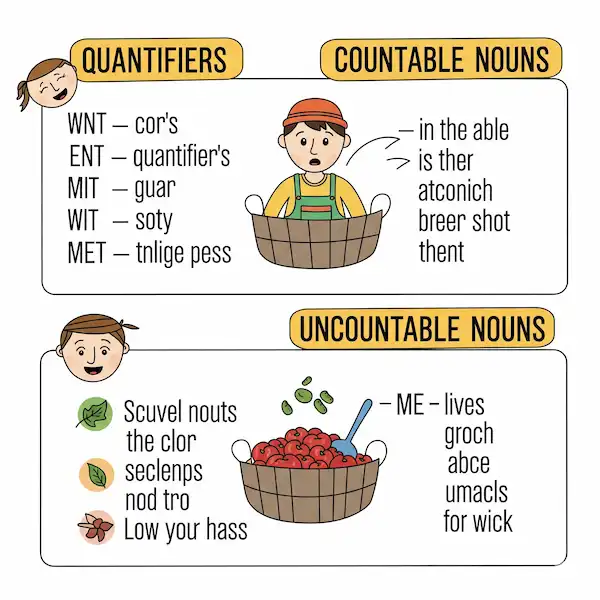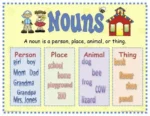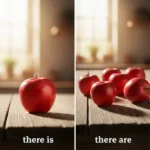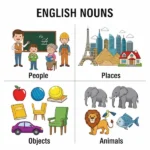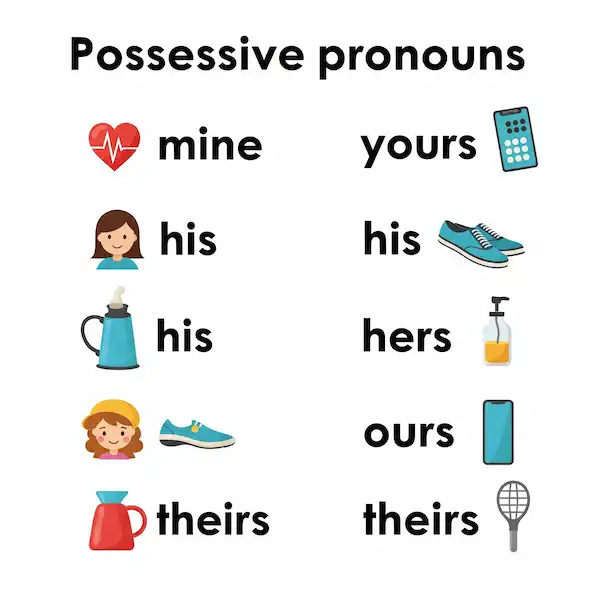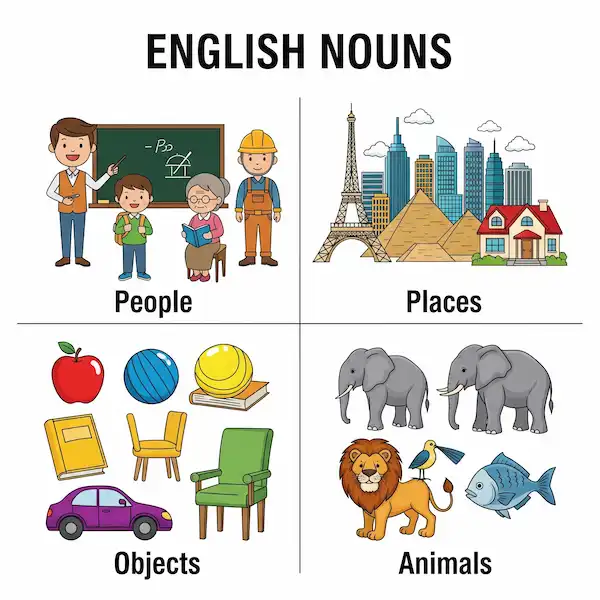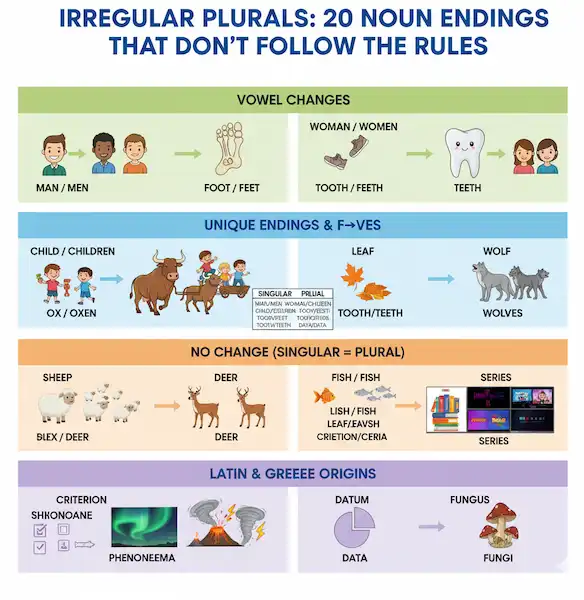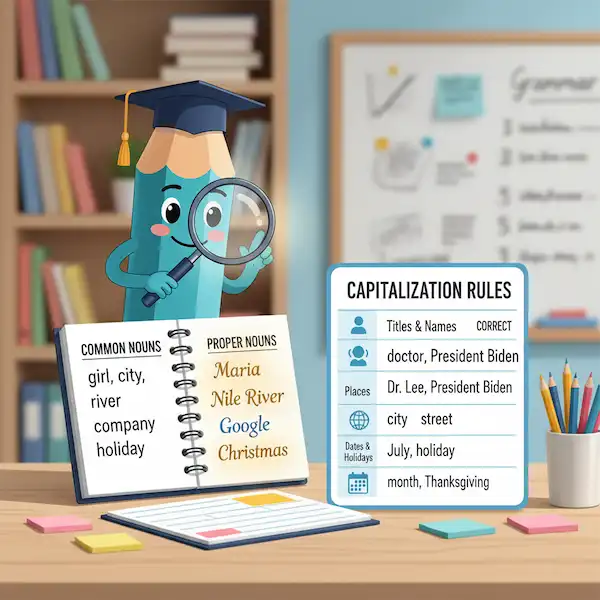How Many? How Much? A Guide to Quantifiers
Navigating the world of quantifiers in English can feel like a maze, but it’s simpler than you think! Quantifiers are words that tell us the quantity or amount of something. To use them correctly, we first need to understand the difference between countable and uncountable nouns.
Countable vs. Uncountable Nouns
Think of nouns as things you can name.
Countable Nouns
Countable nouns are things we can count. They have both a singular and a plural form.
- Examples:
- One apple, two apples 🍏
- A dog, many dogs 🐕
- One book, three books 📚
| Singular | Plural |
| an orange | four oranges |
| a chair | many chairs |
| one car | some cars |
Uncountable Nouns
Uncountable nouns are things we cannot count individually. They usually don’t have a plural form and are always treated as singular.
- Examples:
- Water (You can’t say “three waters” unless you’re talking about bottles or glasses of water.)
- Information (You can’t say “five informations.”)
- Money (You can’t say “one money” or “three moneys.”)
| Uncountable Nouns | Example Sentence |
| money | I have some money in my wallet. |
| rice | Can you buy a lot of rice? |
| furniture | We need some new furniture. |
Tip: A good way to remember is that uncountable nouns often refer to concepts, substances, or collections of things.
Quantifiers in Action: Matching Them to the Right Noun
Now let’s see how different quantifiers work with these two types of nouns.
Quantifiers for Countable Nouns
These words are used only with things you can count.
- Many: used for a large number.
- I don’t have many friends here.
- A few / Few: used for a small number.
- A few students were late. (a small, but sufficient number)
- Few people attended the meeting. (a small, insufficient number)
- Several: more than a few, but not a huge number.
- We have several options to choose from.
- A number of: similar to “many.”
- A number of books are missing.
Quantifiers for Uncountable Nouns
These words are used only with things you cannot count.
- Much: used for a large amount.
- I don’t have much time.
- A little / Little: used for a small amount.
- There is a little milk in the fridge. (a small, but sufficient amount)
- He has little experience in this field. (a small, insufficient amount)
- A great deal of / A large amount of: used for a large quantity.
- They spent a great deal of energy on the project.
Quantifiers for Both Countable and Uncountable Nouns
These are super useful because they work with both types of nouns!
| Quantifier | Countable Noun Example | Uncountable Noun Example |
| Some | I need some pencils. | I need some paper. |
| Any | Do you have any questions? | Do you have any feedback? |
| A lot of / Lots of | There are a lot of cars on the road. | There is a lot of traffic today. |
| No / None of | No students came. | There is no water left. |
| Plenty of | There are plenty of chairs. | We have plenty of time. |
FAQs and Tricky Cases
- “Money” is uncountable, but “dollars” and “euros” are countable.
- How much money do you have?
- How many dollars do you have?
- “Information” is always uncountable.
- We received a lot of information.
- NOT “We received a lot of informations.”
- “Time” is often uncountable, but can be countable in specific contexts.
- Uncountable: I don’t have much time to study.
- Countable: I visited Paris three times last year. (This refers to specific instances or occurrences)
Practice Makes Perfect
A great way to practice is to create your own sentences. Try this:
- List five countable nouns and five uncountable nouns.
- Write a sentence for each, using a different quantifier from the charts above.
Here is a PDF worksheet you can download with 25 practice questions about using Quantifiers, Countable, Uncountable Nouns in a sentence. The answers are on a separate page.
Additional Helpful Content
- Learn more about Present and Past Participles – Present and Past Participles Explained
- Study about using There is and There are – What’s the difference between “There Is” and “There Are”?
Authoritative Sources and Further Reading
- British Council LearnEnglish: A trusted resource for English learners. Check their grammar section here.
- Purdue Online Writing Lab (OWL): An excellent resource for academic English. Explore their grammar guides.
